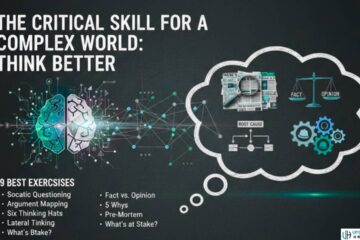Time is a precious resource, yet many of us find ourselves falling victim to time-wasting activities that hinder our progress toward achieving our goals. In this article, we’ll delve into a comprehensive guide that will provide you with actionable steps to help you stop wasting time, eliminate time-wasting habits, prioritize effectively, minimize distractions, and set SMART goals that lead to success.
Understanding the Time-Goal Paradox
Time can be both a friend and a foe when it comes to achieving your goals. While you might feel like there’s never enough time, understanding how to manage it effectively can be a game-changer. The first step is acknowledging the time-goal paradox—recognizing that managing time is essentially about managing ourselves.
How to Identify Time-Wasting Activities
Before you can tackle time-wasting, it’s crucial to identify which activities are consuming your valuable time. Here are steps to help you pinpoint and address these activities:
- Track Your Time: Keep a journal or use time-tracking apps to monitor how you spend your day. This will reveal patterns and areas where time is being wasted.
- Analyze Patterns: After a week, analyze your tracking data. Identify activities that offer little to no value or contribute minimally to your goals.
- Categorize Activities: Group activities into “productive” and “non-productive” categories. This will give you a clearer picture of where your time is going.
- Make Conscious Choices: Armed with this awareness, consciously choose to reduce or eliminate non-productive activities.
The Importance of Prioritizing to Avoid Wasting Valuable Time
Effective prioritization is the cornerstone of successful time management. Here’s how to prioritize your tasks and commitments:
- Urgent vs. Important: Use the Eisenhower Matrix to categorize tasks into four quadrants: urgent and important, important but not urgent, urgent but not important, and neither urgent nor important. Focus on tasks in the first two quadrants.
- Consider Your Goals: Assess how each task aligns with your short-term and long-term goals. Allocate more time to tasks that contribute directly to your objectives.
- Learn to Say No: Politely decline tasks that don’t align with your goals or that would overwhelm your schedule. Prioritize your time and energy for what truly matters.
Tips for Minimizing Distractions and Staying Focused
Distractions can be major time thieves. Here’s how to regain your focus:
- Create a Dedicated Workspace: Designate a clutter-free workspace that is solely for work or goal-related tasks.
- Set Boundaries: Communicate your work hours to friends and family to minimize interruptions during crucial periods.
- Digital Detox: Turn off non-essential notifications on your devices to reduce distractions.
- Use Time Blocks: Implement time blocking, where you dedicate specific time intervals to focused work, followed by short breaks.
Scheduling Techniques That Prevent Time-Wasting
Crafting an effective schedule is vital for utilizing time efficiently. Consider these techniques:
- Time Blocking: Plan your day in blocks of time dedicated to specific tasks. This helps maintain focus and prevents tasks from bleeding into one another.
- Batching: Group similar tasks together and tackle them in one go. This minimizes the time spent transitioning between different activities.
- The Two-Minute Rule: If a task can be completed in two minutes or less, do it immediately. This prevents small tasks from piling up and becoming time-consuming.
Setting SMART Goals to Make the Best Use of Your Time
Setting goals that are Specific, Measurable, Achievable, Relevant, and Time-bound (SMART) is a proven way to optimize your time and efforts:
- Specific: Define your goals clearly. Vague goals can lead to aimless efforts.
- Measurable: Set criteria to measure your progress. This provides motivation and clarity.
- Achievable: Ensure your goals are realistic and attainable within your resources.
- Relevant: Align your goals with your overall vision and priorities.
- Time-Bound: Set a deadline for each goal. This adds a sense of urgency and helps you stay on track.
Boosting Productivity: Practical Tips for Success

Embrace the Power of Planning
Effective planning is the cornerstone of time management. Start each day by outlining the tasks you need to accomplish. This helps you set clear expectations and reduces the likelihood of feeling overwhelmed.
Utilize Technology Wisely
While technology can be a source of distraction, it can also be a powerful tool for productivity. Use apps and tools designed to enhance time management, such as task managers, calendar apps, and time tracking software.
Learn to Say No
Saying yes to every request can lead to overcommitment and time wastage. Politely decline tasks and projects that don’t align with your goals or current workload. This allows you to focus on what truly matters.
Practice the Two-Minute Rule
If a task can be completed in two minutes or less, do it immediately. This prevents small tasks from piling up and consuming your time later.
Stay Mindful and Present
Mindfulness helps you stay focused on the present moment, reducing the tendency to dwell on past mistakes or worry about the future. This state of mind enhances your efficiency and decision-making.
Delegate Regularly
Delegation isn’t a one-time event; it’s an ongoing process. Regularly assess your tasks and responsibilities, and delegate whenever possible. This empowers your team and allows you to concentrate on high-priority tasks.
Conclusion
Wasting time is a habit that can be challenging to break, but with determination and strategic efforts, you can shift your focus from time-wasting activities to purposeful endeavors. By identifying these activities, prioritizing tasks, minimizing distractions, using scheduling techniques, and setting SMART goals, you’re paving the way to optimal time management and goal achievement.
Remember, time wasted can never be regained, but time invested wisely can lead to remarkable achievements. Take charge of your time today, and watch how it transforms your journey toward realizing your dreams.
FAQs
Is multitasking effective for productivity?
Multitasking may seem efficient, but it often leads to decreased productivity and quality of work. Prioritize single-tasking for better results.
Can I achieve work-life balance while pursuing my goals?
Yes, work-life balance is attainable. Set boundaries, allocate time for personal activities, and stick to a well-structured routine.
What if I face setbacks in my goal achievement journey?
Setbacks are natural and offer valuable learning experiences. Use them as opportunities to reassess your approach, make adjustments, and persevere.
Is continuous learning necessary for success?
Absolutely. Continuously expanding your knowledge and skill set keeps you adaptable and competitive in a rapidly evolving world.










